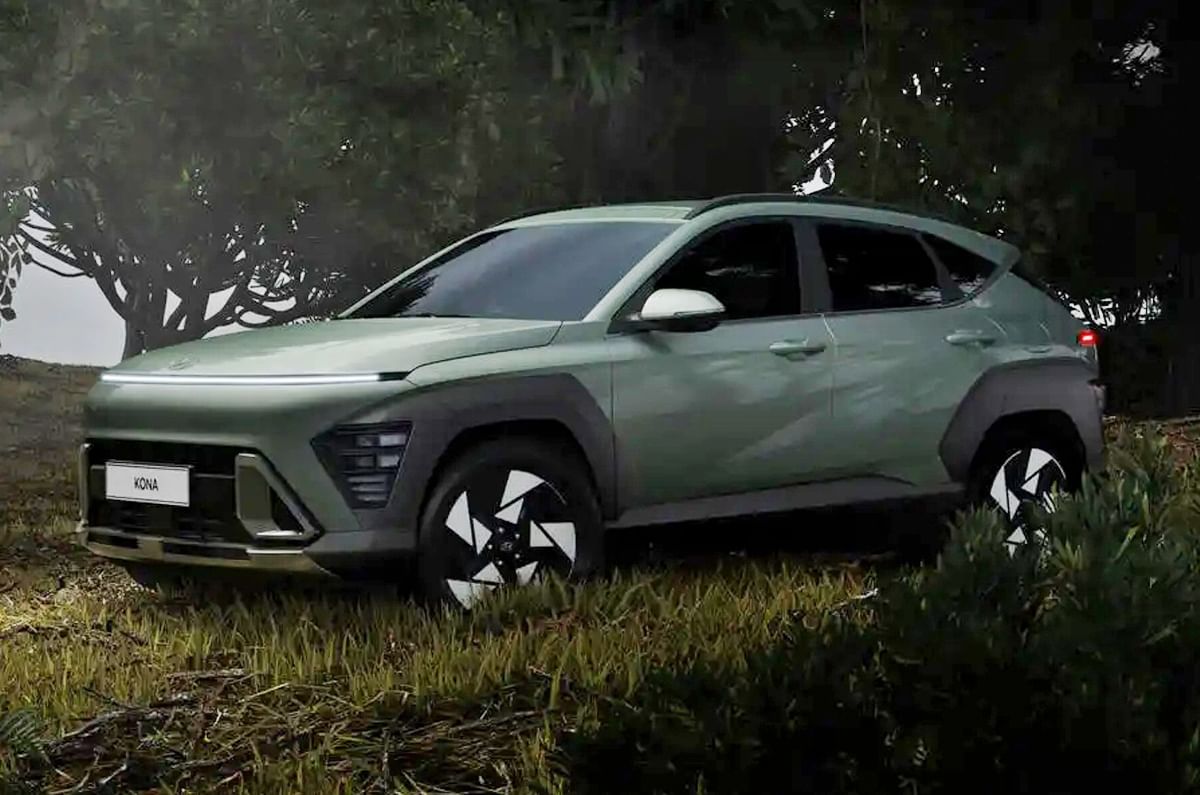Hyundai has taken the wraps off the second-gen Kona crossover, which has been radically redesigned, with an increase in dimensions to cement its foothold in the fiercely fought global crossover market.
- New Kona gets petrol, hybrid and EV powertrain
- Sits on the same K3 platform as the Kia Niro
- India will see Ioniq5 EV launch in early 2023
New Hyundai Kona: radical design with concept-like looks
Early design images reveal that the new Kona, due to arrive in mid-2023, takes influence from last year’s bold Hyundai Seven concept, with a slim wraparound front light bar, clamshell bonnet and chunky off-road influenced design cues.
It's 150mm longer than the current Kona (at 4,355mm), 25mm wider and has a 60mm longer wheelbase. These increase in dimensions, Hyundai says, provide “maximised living space” in the revamped cabin, which hosts a similar wraparound digital driver display like the Ioniq 5 – in the form of dual 12.3-inch displays. These screens have been coupled with physical buttons for the climate control and heated seats located on a floating module just underneath.

Extra space has also been created for passengers, as well as baggage, both in the front and rear of the car. Some of this can be found in the centre console, where additional storage has been freed up after designers moved the gear shifter to the steering column. The car has also been designed to “maximise” boot space, which will be larger than the current Kona’s 374-litre capacity.
The new Kona will sit on the same Hyundai-made K3 platform as sister brand Kia’s new Niro. This means that a similar array of powertrain options are expected to be available on the Kona, bringing petrol, hybrid and electric options depending on market. A sporty N Line model is due, too, although there's no word on a new N variant. While the new Kona comes with radical and futuristic design changes over the current model, changes underneath are expected to be subtler.
Depending on the powertrain selected, the design will also be tweaked. The EV gets exterior pixel graphic details, while the hybrid and ICE models are fitted with skidplates at the front and rear. The N Line adds a “wing-type spoiler”.
New Kona EV to would continue with outgoing model’s powertrain
This is likely to mean that the Kona EV will be launched with the same powertrain that the current car and the Niro EV offer globally: a 64.8kWh battery – good for 459km of range and a 10-80 percent DC charge time of 43 minutes – and a motor making 204hp and 255Nm of torque. With this, expect the Kona to offer a 0-100kph time close to that of the Niro EV’s 7.8sec. In India, the Kona EV, however, came with a smaller 39.2kWh battery pack.
Kona Hybrid, ICE powertrain details
The Kona hybrid is expected to continue with the same 1.6-litre petrol engine and 43hp electric motor, which gives a total output of 140hp. The small 119hp, 1.0-litre petrol engine used on the ICE Kona is also expected to be carried over for the international markets. A plug-in hybrid option could also be introduced on the Kona, given that this is offered on the Niro as well. The Niro PHEV uses the same 1.6-litre petrol engine paired to a larger electric motor, raising output to 182hp. Electric-only range is set at around 64km.
Hyundai’s EV line-up in India
The first-gen Kona EV is still listed on Hyundai India's website, and while the facelifted version of the outgoing Kona was expected to be brought to India this year, it remains to be seen how Hyundai updates the Kona range in India. Hyundai will also add a second EV in its India line-up in the form of the stylish Ioniq 5 that will go on sale in early 2023.
Also See:
SUV tax rates remain unchanged post GST Council clarification
Maruti Suzuki confirms 2 new SUVs, EV SUV concept for Auto Expo 2023
17 cars, SUVs being killed off by RDE norms before April 2023


